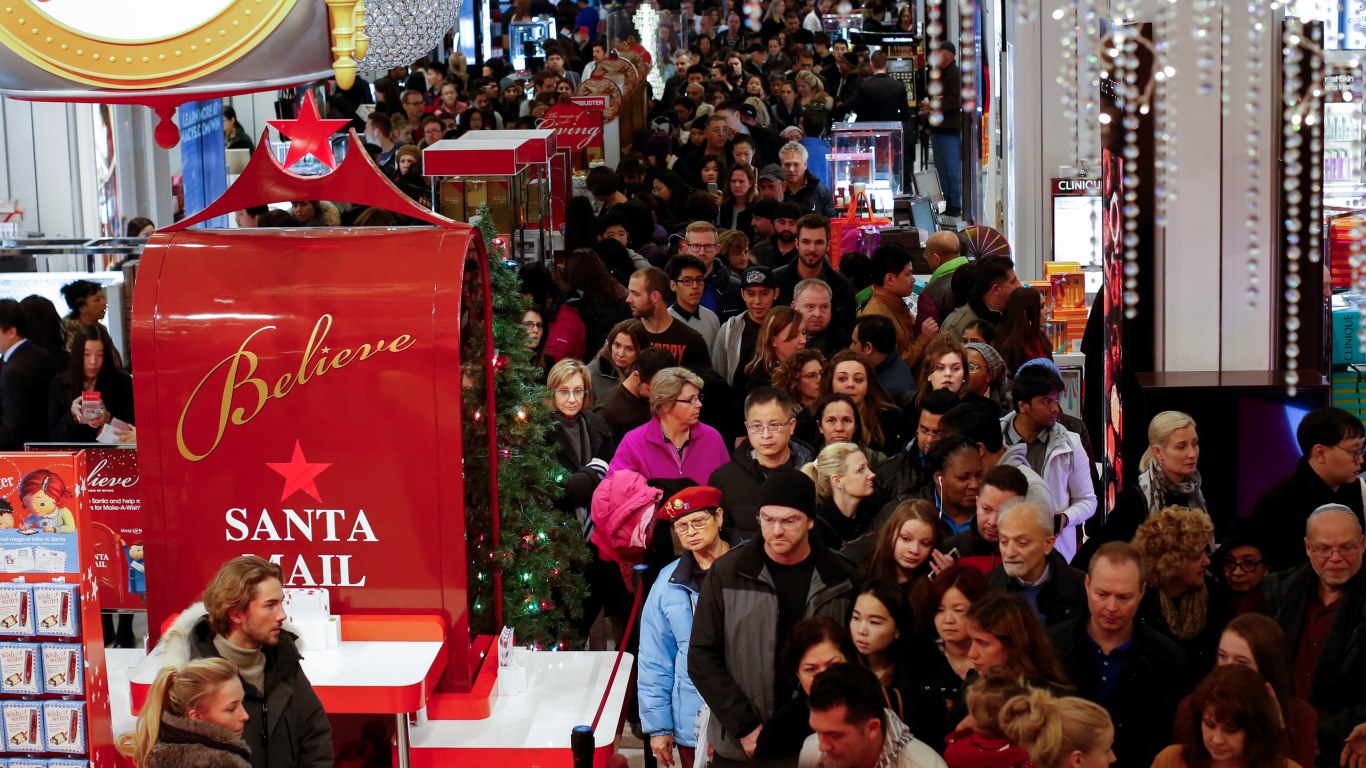Retail
Early Estimates of Americans' Holiday Spending May Be Too Low

Published:
Last Updated:

In early October, the National Retail Federation (NRF) estimated 2019 holiday season sales would rise by 3.8% to 4.2% year over year to total between $727.9 billion and $730.7 billion. That may be too low.
Research firm Morning Consult reported Thursday that its late October survey of 2,200 U.S. adults indicates that year-over-year spending growth could reach 4.5% to 5.0% this year. According to the survey, 70% of Americans plan to spend at least $100 during this year’s Black Friday weekend, the same amount they spent last year.
The top retail destinations this year are Walmart and Amazon. More than three-quarters of Americans (77%) plan to shop at Walmart while 74% plan to shop at Amazon. Morning Consult noted that at least 88% of Americans with incomes of at least $100,000 will purchase goods at Amazon, while 67% of Americans with that level of income will buy from Walmart and Target.
More than half of Americans (52%) plan to shop on Cyber Monday, while 45% say they’ll be shopping on Black Friday. Just over a third (34%) expect to shop online specifically for holiday gifts. Less than a quarter (22%) say they tend to shop more, in general, online than in brick-and-mortar stores, while 44% say they generally shop more at physical stores and 31% say they generally shop brick-and-mortar stores more for holiday gifts.
Interestingly, 75% of Gen Z adults (ages 18 to 22) shop in physical stores while just 64% shop online. More boomers shop online (70%). Gen X (ages 39 to 54) spend an equal amount of time (77%) shopping in brick-and-mortar stores and online. Millennials (ages 23 to 38) shop a bit more online (79%) than in physical stores (77%). It seems that the holiday shoppers, no matter their age, still like the hustle and bustle of shopping in the real world.
The most likely gift purchases this year are clothing (73%), gift cards (69%) and food (60%). The most popular electronic gifts are headphones (33%), gaming consoles (24%), TVs (22%), tablets (22%), smartphones (22%) and speakers (18%). Another 22% of purchases are likely to be watches, a large portion of which is likely to be smartwatches.
Morning Consult concludes that resilient labor markets, an overestimated impact from tariffs, strong corporate earnings and rebounding consumer optimism all contributed to the more upbeat forecast for the 2019 holiday shopping season. Retailers are also comparing this year to weak holiday season sales last year, and while wage gains have been modest this year, so has inflation.
The one thing that could still cause a problem is this year’s six-day shorter holiday season (from Thanksgiving to Christmas). Sales could be pulled forward or consumers may think they have more time than they really do. If the latter, online gift cards could be a big, last-minute hit with last-minute shoppers.
Start by taking a quick retirement quiz from SmartAsset that will match you with up to 3 financial advisors that serve your area and beyond in 5 minutes, or less.
Each advisor has been vetted by SmartAsset and is held to a fiduciary standard to act in your best interests.
Here’s how it works:
1. Answer SmartAsset advisor match quiz
2. Review your pre-screened matches at your leisure. Check out the advisors’ profiles.
3. Speak with advisors at no cost to you. Have an introductory call on the phone or introduction in person and choose whom to work with in the future
Thank you for reading! Have some feedback for us?
Contact the 24/7 Wall St. editorial team.